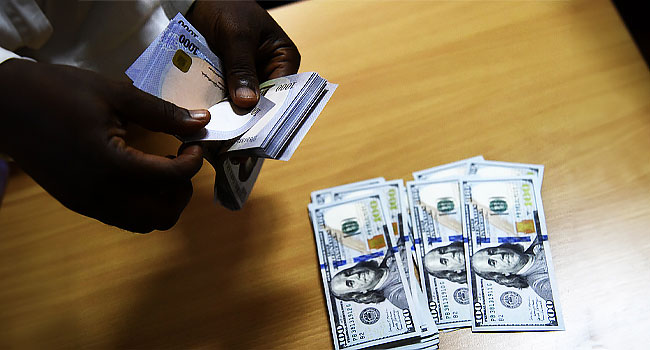The Central Bank of Nigeria (CBN) has announced new regulations for foreign exchange (forex) sellers to Bureau De Change (BDC), requiring declaration of forex sources for transactions of $10,000 and above.
These regulations, outlined in a revised framework published on Friday, aim to curb excesses among BDCs and address uncertainties in the forex market, according to the apex bank.
Under the new guidelines, sellers must adhere to Anti-Money Laundering/Combating the Financing of Terrorism (AML/CFT) regulations and foreign exchange laws. The CBN emphasizes that these measures will bolster the regulatory framework for BDC operations amidst ongoing reforms in Nigeria’s forex market.
The guidelines also cover permissible activities, licensing requirements, corporate governance, and AML/CFT provisions for BDCs.
According to the guidelines, BDCs can source foreign currencies from various channels, including tourists, diaspora returnees, expatriates, residents with foreign exchange inflows, International Money Transfer Operators (IMTOs), authorized buyers like embassies and hotels, the Nigerian Foreign Exchange Market (NFEM), and other sources specified by the CBN.
Customers are allowed to transfer foreign currencies from their individual domiciliary accounts with Nigerian banks to BDCs. All digital/transfer purchases of foreign currencies will be credited to the BDC’s Nigerian domiciliary account, with payments made via transfer to the customer’s Naira account or issuance of a prepaid NGN card for non-resident customers.
For cash purchases of foreign currency exceeding USD500, payments will be made via transfer to the customer’s Naira bank account or issuance of a prepaid NGN card for nonresident customers. Cash purchases below the equivalent of USD500 may be paid in cash.
These regulations aim to streamline forex transactions, ensure compliance with regulatory standards, and foster transparency in Nigeria’s forex market landscape.
